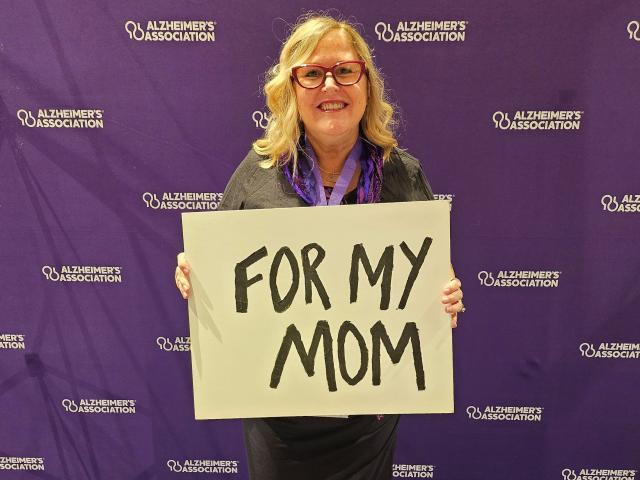Washington, D.C., December 21, 2020 — The Alzheimer's Association and the Alzheimer's Impact Movement (AIM) commend congressional leaders for today's decision to advance a series of bipartisan policies in the fight to end Alzheimer's. Today's omnibus includes a $300 million increase for Alzheimer's and dementia research funding at the National Institutes of Health (NIH) for fiscal year 2021, $15 million to fund and implement the BOLD Infrastructure for Alzheimer's Act (P.L. 115-406), and advances the Improving HOPE for Alzheimer's Act (S. 880/H.R. 1873).
"Today's agreement by congressional leaders reflects a broad, bipartisan commitment to accelerate the pace of progress toward breakthroughs in care, treatment and prevention for Alzheimer's and all other dementia," said Robert Egge, AIM executive director and Alzheimer's Association chief public policy officer. "We are grateful to our longtime congressional champions for their steadfast commitment on behalf of the millions of Americans living with this devastating and fatal disease."
Prioritizing Medical Research and a Strong Public Health Infrastructure
This research funding increase was advocated for by the Alzheimer's Association, AIM and its nationwide network of dedicated advocates. Spearheaded by Sen. Roy Blunt (R-Mo.), Sen. Patty Murray (D-Wash.), Rep. Tom Cole (R-Okla.) and Rep. Rosa DeLauro (D-Conn.), today's action demonstrates policymakers' renewed commitment to advance Alzheimer's and dementia research.
When the National Alzheimer's Project Act (NAPA), legislation championed by the Alzheimer's Association and AIM, was signed into law nearly 10 years ago, the federal government invested just $448 million annually. With this increase, annual Alzheimer's and dementia research funding at the NIH will reach $3.1 billion.
In addition to enabling new research into Alzheimer's and all other dementia, the omnibus spending package includes $15 million to fund the BOLD Infrastructure for Alzheimer's Act. Passed overwhelmingly in December 2018, the law directs the Centers for Disease Control and Prevention (CDC) to strengthen the public health infrastructure across the country by implementing effective Alzheimer's interventions focused on public health issues such as increasing early detection and diagnosis, reducing risk, and preventing avoidable hospitalizations.
Educating Providers About Care Planning
Since January 2017, following advocacy by the Association and AIM, Medicare has covered care planning for individuals with cognitive impairment, including dementia. However, in the first year, fewer than 1% of seniors living with Alzheimer's received the care planning benefit. The Improving HOPE for Alzheimer's Act will give clinicians the knowledge and tools to better help people living with dementia and their families.
"For individuals living with Alzheimer's and their caregivers, care planning is essential to learning about medical and non-medical treatments, clinical trials and support services available in their community," said Robert Egge, AIM executive director and Alzheimer's Association chief public policy officer. "We are grateful to the bill's cosponsors and congressional leaders for prioritizing provider education which will lead to better health outcomes for people living with dementia and their caregivers."
In addition to educating clinicians on care planning services available under Medicare, this act requires the Department of Health and Human Services (HHS) to report on the barriers to individuals receiving care planning services and how the rate of usage can be increased.
The bipartisan Improving HOPE for Alzheimer's Act was introduced by Sens. Debbie Stabenow (D-Mich.), Susan Collins (R-Maine), Ed Markey (D-Mass.), Shelley Moore Capito (R-W. Va.) and Bob Menendez (D-N.J.), and Reps. Paul Tonko (D-N.Y.), Jackie Walorski (R-Ind.), Earl Blumenauer (D-Ore.), Brett Guthrie (R-Ky.), Maxine Waters (D-Calif.) and Chris Smith (R-N.J.). Since its introduction, AIM advocates grew support for the bill resulting in nearly half of the Senate and over 200 members in the House having cosponsored the legislation.
The House and Senate are expected to pass the FY21 omnibus spending bill and advance it to the president, where it is expected to be signed into law.
